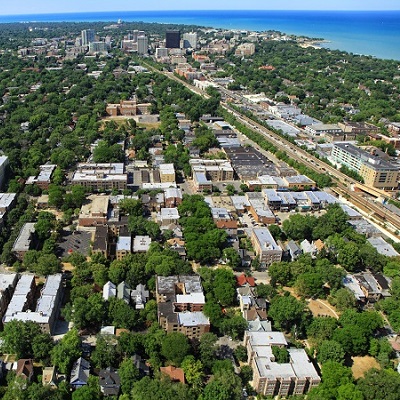In order to determine the environmental impact of their waste transfer station, the Evanston team plans to hold a public meeting describing the project strategy with city aldermen, scientists, and its environmental justice task force in attendance. Although project has stalled due to budgetary issues, the team has made progress in a number of areas. First, Kumar Jensen hopes to issue purchase orders for monitoring equipment by the end of January. In response to a meeting in November 2017 where community members requested that the City talk to them about how the public will be engaged in this monitoring process, the team plans to hold the public meeting by the end of winter/early spring.
The public meeting will be hosted by city aldermen with Gaj Sivandran and colleagues and the environmental justice task force present. In the next couple of weeks, using air quality sampling equipment he already has, Gaj and his colleague plan to sample key sites as part of a freshman introductory research course. Therefore, by the time of the public meeting, they will have some ideas of the best placement of the air quality equipment and be able to discuss the type of data they will collect. The team expects that this meeting will be both open to the general public and an informative way to kickoff the next phase of this project.
By February 2018, the team expects to accomplish the following:
- From the scientific partner perspective:
- Gaj’s colleague and partner, Mark, will give a guest lecture to his freshman course prior to their field work.
- His freshmen will then be in the field in the next 2 weeks and their sampling should result in data that gives indication as to where air quality monitoring equipment should be placed.
- From the community lead perspective:
- Kumar requests that Gaj provide him with a short description of the work that the freshmen will do as part of their course as it relates to this project. He will provide this to the city aldermen in his next update.
- Priority will be placed on having the monitoring equipment bid submitted.
- Kumar has had separate discussions with two local institutions to determine whether: 1) he can obtain support on translating air quality data into potential health impacts; 2) what the difference in costs might be if he were to rent equipment from a local institution rather than buying it outright.






